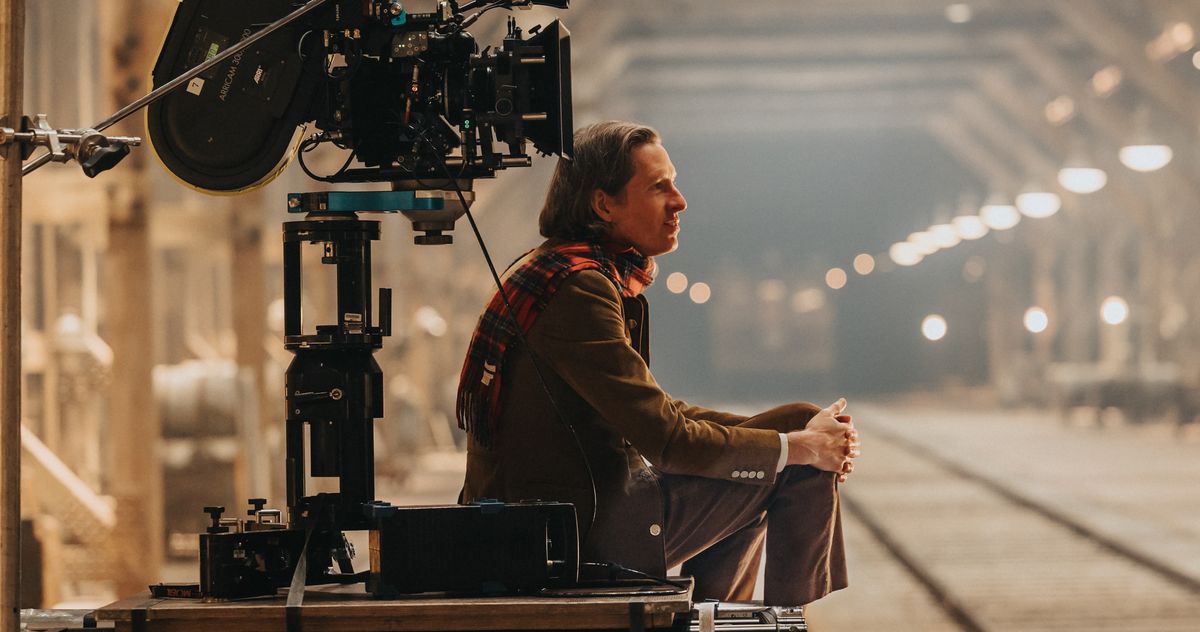Wes Anderson: Exploring The Melancholy Underpinnings Of His Whimsical Films

Welcome to your ultimate source for breaking news, trending updates, and in-depth stories from around the world. Whether it's politics, technology, entertainment, sports, or lifestyle, we bring you real-time updates that keep you informed and ahead of the curve.
Our team works tirelessly to ensure you never miss a moment. From the latest developments in global events to the most talked-about topics on social media, our news platform is designed to deliver accurate and timely information, all in one place.
Stay in the know and join thousands of readers who trust us for reliable, up-to-date content. Explore our expertly curated articles and dive deeper into the stories that matter to you. Visit Best Website now and be part of the conversation. Don't miss out on the headlines that shape our world!
Table of Contents
Wes Anderson: Exploring the Melancholy Underpinnings of His Whimsical Films
Wes Anderson. The name conjures images of meticulously crafted symmetry, pastel palettes, and quirky characters engaged in exquisitely choreographed chaos. His films are instantly recognizable, a vibrant tapestry woven with a distinct visual style and dry, witty dialogue. But beneath the whimsical surface lies a current of melancholy, a poignant undercurrent that resonates deeply with audiences and critics alike. This exploration delves into the melancholic heart beating at the core of Anderson's seemingly cheerful cinematic universe.
<h3>A Symphony of Symmetry and Sadness</h3>
Anderson's films are often lauded for their visual perfection. The symmetrical compositions, the meticulously chosen color schemes, and the perfectly placed props all contribute to a sense of artificial order, a carefully constructed world that feels both enchanting and slightly unsettling. This very precision, however, highlights the fragility of the characters and their relationships. The perfect symmetry mirrors the yearning for a perfect, unattainable life, a yearning that often goes unfulfilled. This tension between meticulously crafted beauty and inherent human sadness is a key element of Anderson's artistic signature.
<h3>Themes of Loss and Longing</h3>
Many of Anderson's films grapple with themes of loss and longing. From the fractured family dynamics in The Royal Tenenbaums to the poignant search for identity in Moonrise Kingdom, a sense of yearning permeates his narratives. Characters often grapple with absent or estranged parents, failed relationships, and the irreversible passage of time. This melancholic undercurrent isn't presented overtly; instead, it subtly informs the characters' actions and interactions, adding a layer of emotional depth to the often comedic scenarios.
<h3>The Power of Nostalgia</h3>
Nostalgia plays a significant role in Anderson's work. His films often evoke a specific time and place, creating a sense of longing for a past that may never have existed or may be irrevocably lost. This nostalgic element enhances the melancholic tone, highlighting the bittersweet nature of memory and the passage of time. Consider the evocative imagery of The Grand Budapest Hotel, a film brimming with both charm and a deep sense of loss for a bygone era.
<h3>Characters Defined by Their Flaws</h3>
Anderson's characters are rarely flawless. They are eccentric, flawed individuals grappling with their own insecurities and shortcomings. This realism, despite the often fantastical settings, grounds the films in a relatable human experience. Their struggles, their failures, and their ultimate acceptance of their imperfections contribute to the overall melancholic undertone, reminding us of the inherent complexities of human life.
<h3>Beyond the Whimsy: A Deeper Look</h3>
While the vibrant visuals and quirky humor are undeniably captivating, a closer look reveals a darker, more introspective side to Anderson's filmmaking. His films offer a poignant commentary on family, relationships, and the human condition, exploring the complexities of grief, loss, and the enduring power of human connection amidst life's inevitable disappointments.
<h3>Conclusion: A Master of Melancholy</h3>
Wes Anderson's films are not simply whimsical escapades; they are deeply affecting explorations of the human experience, infused with a subtle yet pervasive melancholy. His unique style, coupled with his insightful storytelling, creates a cinematic experience that is both captivating and profoundly moving, leaving audiences with a lingering sense of both joy and sorrow. Understanding this melancholic undercurrent enhances the appreciation of his artistry and the enduring impact of his films. What are your thoughts on the melancholic themes in Wes Anderson's work? Share your perspective in the comments below!

Thank you for visiting our website, your trusted source for the latest updates and in-depth coverage on Wes Anderson: Exploring The Melancholy Underpinnings Of His Whimsical Films. We're committed to keeping you informed with timely and accurate information to meet your curiosity and needs.
If you have any questions, suggestions, or feedback, we'd love to hear from you. Your insights are valuable to us and help us improve to serve you better. Feel free to reach out through our contact page.
Don't forget to bookmark our website and check back regularly for the latest headlines and trending topics. See you next time, and thank you for being part of our growing community!
Featured Posts
-
 Two Home Runs One Night Ohtanis Success On Angels Bobblehead Night
May 17, 2025
Two Home Runs One Night Ohtanis Success On Angels Bobblehead Night
May 17, 2025 -
 Doubts Resolved Harvards Low Cost Magna Carta Confirmed Real
May 17, 2025
Doubts Resolved Harvards Low Cost Magna Carta Confirmed Real
May 17, 2025 -
 King A Popular Baby Name In The Us Banned In New Zealand
May 17, 2025
King A Popular Baby Name In The Us Banned In New Zealand
May 17, 2025 -
 Indie Hit Friendship Expands To Top Ten Markets Sister Midnight And The Old Woman With The Knife
May 17, 2025
Indie Hit Friendship Expands To Top Ten Markets Sister Midnight And The Old Woman With The Knife
May 17, 2025 -
 Key Hit For Dodgers Chris Taylor Scores On Grounder
May 17, 2025
Key Hit For Dodgers Chris Taylor Scores On Grounder
May 17, 2025
Latest Posts
-
 Amidst Chaos And Confusion Analysis Of The First Russia Ukraine Direct Talks In 3 Years
May 18, 2025
Amidst Chaos And Confusion Analysis Of The First Russia Ukraine Direct Talks In 3 Years
May 18, 2025 -
 No Savings One In Ten Britons Face Financial Precarity Says Uk Regulator
May 18, 2025
No Savings One In Ten Britons Face Financial Precarity Says Uk Regulator
May 18, 2025 -
 Rice Contamination Concerns Cnn Investigation Reveals Arsenic And Cadmium Risks
May 18, 2025
Rice Contamination Concerns Cnn Investigation Reveals Arsenic And Cadmium Risks
May 18, 2025 -
 Angels Ohtani Powers Team To Win Hits Two Home Runs On Bobblehead Night
May 18, 2025
Angels Ohtani Powers Team To Win Hits Two Home Runs On Bobblehead Night
May 18, 2025 -
 Shohei Ohtani Dalton Rushing Lead Dodgers To Commanding Win Over Athletics
May 18, 2025
Shohei Ohtani Dalton Rushing Lead Dodgers To Commanding Win Over Athletics
May 18, 2025
